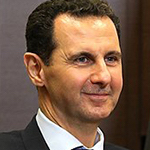|
|
Globalization critics argue that a country’s economic woes and job losses are the result of uneven trade conditions and the decisions of multinationals to create production operations and supply chains that favor foreign markets at the expense of jobs and growth at home. The criticism is also often linked to immigration policies, creating a compelling political argument that fuels trade protectionist sentiment.
These tensions have risen across the globe in recent years despite research measuring the actual scale of globalization which suggests that protectionist fears may be overstated. But as we know in the communications world, perception is reality.
|
|
Multinationals will continue to seek growth in international markets and should be prepared to manage the host of issues they may face abroad and at home. To do so, it is important that their communications activities be organized around four fundamental principles, namely: relevancy, consistency, flexibility and efficiency.
To succeed globally, think locally
An international organization must tap into local market expertise to ensure that its communications activities are relevant. The old adage “think globally, act locally” must be modified to include thinking locally as well. The success of the “global” program conceived at some far-off headquarters or the response to an issue or crisis requires local market context and relevancy in order to resonate with target audiences and yield the desired result.
In early 2017, we saw U.S. brands go on the defensive when Mexican consumers reacted to the rhetoric out of Washington D.C. about ending NAFTA and building a wall on the U.S. border with Mexico. Mexican consumers struck back with online actions such as #AdiosStarbucks and #AdiosProductosGringos, which generated anti-American brand sentiment and encouraged boycotting of U.S. brands such as McDonalds, Coca-Cola and Walmart.
Starbucks was adept in its local response, taking the opportunity to communicate to Mexican consumers that its stores in Mexico are actually run by a Mexican company, and pointing out that they provide approximately 7,000 Mexican jobs and also feature Mexican-grown coffee in their stores.
Keep communications consistent
It is also critical for multinational companies to be consistent in their brand and corporate communications, ensuring that actions in each market stay on-strategy while making the proper adjustments for local market relevancy. This is a major challenge since multinationals must manage a complex matrix of stakeholders, including customers, investors, employees, communities, governments, regulators, special interest groups, and media and key opinion leaders, to name a few.
Success depends on a model that includes thorough issues mapping and intelligence gathering, with different levels of activity and customized responses for each stakeholder group developed around a coherent strategy and messaging. This kind of stakeholder engagement model and communications consistency will support and protect corporate reputation.
An example of just how tricky this can be in the current anti-globalization environment is automaker BMW’s response to criticism and threats of tariffs coming from then U.S. president-elect Donald Trump. Prior to Trump’s inauguration, BMW executives were adamant about the company’s intention to invest $1.6 billion in building a plant in Mexico. A few months later, BMW softened its position to “wait and see” with its CEO saying “we are flexible.”
The company’s reaction to U.S. protectionist policies will not only affect its business in the U.S. and Mexico, but could have significant ramifications in other markets, at home and with its shareholders. If BMW had started with the latter position it might have won time within an uncertain environment to gather intelligence and further develop its individual stakeholder strategies.
Finally, multinational communications must be flexible and efficient. Companies and brands must be able to respond quickly to shifting circumstances and the immediacy of today’s communications environment. This capability has as much to do with the structure of a company’s communications efforts as its level of dedicated resources.
In our experience working across the markets of Latin America, this is achieved using a coordinated approach that consolidates many of the activities that companies usually duplicate in each market of operation. Activities such as planning and content development, project management, evaluation and reporting are centralized, thereby avoiding redundancies, reducing costs, and eliminating inconsistencies across geographies. Coupled with teams of local market experts, this coordinated approach yields operational and cost efficiencies that help multinationals manage complex issues on a broad geographic scale.
By setting up a core communications structure, companies are also able to start small and scale-up their activities across geographies as needed, taking advantage of key learnings and best practices as they expand.
The changing face of globalization
Thirty years ago, globalization was hailed by many as an engine of economic development that would benefit consumers and improve conditions for people in the world’s developing economies. Today, anti-globalization and nationalist protectionist tendencies are just one set of challenges faced by multinationals.
Attitudes and trends will continue to shift, which is why international companies and brands must focus on maintaining a well-structured communications effort that provides relevancy, consistency, flexibility and efficiency in order to adapt to the continually-changing environment.
***
Brian Burlingame is CEO of JeffreyGroup, the leading independent strategic communications agency for Latin America.

 Brian Burlingame
Brian Burlingame

 Edelman is providing communications support to Panama’s Ministry of Commerce and Industries under an agreement capped at $97,100 per month.
Edelman is providing communications support to Panama’s Ministry of Commerce and Industries under an agreement capped at $97,100 per month. Ballard Partners has recruited State Department veteran Matt Bryza as a senior policy advisor.
Ballard Partners has recruited State Department veteran Matt Bryza as a senior policy advisor. Teneo has extended its contract with the Salama Bint Hamdan Al Nahyan Foundation for an additional four months to July 31, adding another $1.8M in fees to the New York firm’s coffers.
Teneo has extended its contract with the Salama Bint Hamdan Al Nahyan Foundation for an additional four months to July 31, adding another $1.8M in fees to the New York firm’s coffers. The Syrian Kurdish militia recruits Jim Dornan Strategies to press Congress for continued support in their battle against ISIS and Syrian president Bashar Assad.
The Syrian Kurdish militia recruits Jim Dornan Strategies to press Congress for continued support in their battle against ISIS and Syrian president Bashar Assad. The Government of Hungary has hired Strategic Improvisation Inc. to generate positive media coverage and combat negative press coverage of the Central European country. (6 reader comments)
The Government of Hungary has hired Strategic Improvisation Inc. to generate positive media coverage and combat negative press coverage of the Central European country. (6 reader comments)


 Have a comment? Send it to
Have a comment? Send it to 
No comments have been submitted for this story yet.